Fueling Our Immune Health
January 9, 2023 Our bodies are constantly working to keep ourselves healthy. Your food choices can help support immunity in your body. Let’s start with some knowledge around nutrition. Different macronutrients and micronutrients fuel the immune cells.
Our bodies are constantly working to keep ourselves healthy. Your food choices can help support immunity in your body. Let’s start with some knowledge around nutrition. Different macronutrients and micronutrients fuel the immune cells.
Nutrients that have been identified as important for immune health include Vitamin C, Vitamin D, Zinc, Selium, and Iron. So, a variety in the diet is known to be a better strategy than focusing on one type of food to increase immune health.
Good sources of these nutrients include the following:
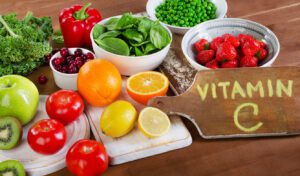 Vitamin C
Vitamin C
red bell peppers 1/2 c (100% of daily recommended amount)
oranges (one medium orange contains 78% of daily recommended amount
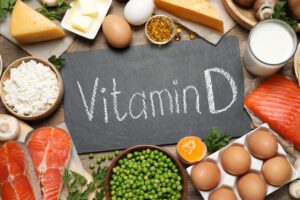 Vitamin D
Vitamin D
salmon – 6oz filet has 127% of daily recommend amount
low-fat milk (29% daily recommended amount per cup)
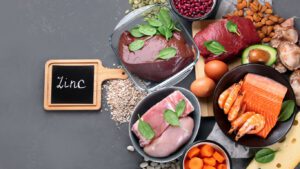 Zinc
Zinc
3 oz of chicken or beef will meet nearly 30-60% of daily recommended amount
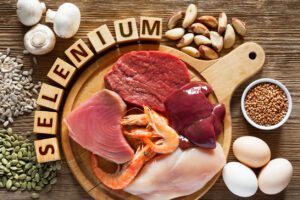 Selenium
Selenium
Brazil nuts, tuna, halibut, shrimp are excellent food sources of selenium
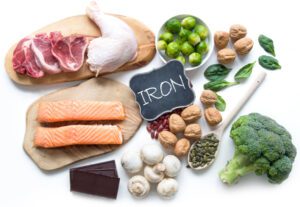 Iron
Iron
Enriched cereal, lentils, beef, chicken, clams are good sources. Eating a source of iron with a source of vitamin C will help your body absorb iron even better.
You can find more food sources here https://ods.od.nih.gov/
More research is being dedicated to learning about the microbiome. This is also known as gut health as we know this is the site of immune activity and production of antimicrobial proteins. Certain helpful microbes break down fibers, which have been shown to stimulate immune cell activity. These fibers are sometimes called prebiotics because they feed microbes. Probiotic foods contain live helpful bacteria, and prebiotic foods contain fiber and oligosaccharides that feed and maintain healthy colonies of those bacteria. Therefore, a diet containing probiotic and prebiotic foods may be beneficial. Probiotics are found in less common foods. Some examples include kefir, yogurt with live active cultures, fermented vegetables, olives, sauerkraut, tempeh, kombucha tea, kimchi, and miso. Some recipes to help add more of these foods to your dietary pattern can be found here. Prebiotic foods include garlic, onions, leeks, asparagus, Jerusalem artichokes, dandelion greens, bananas and seaweed.
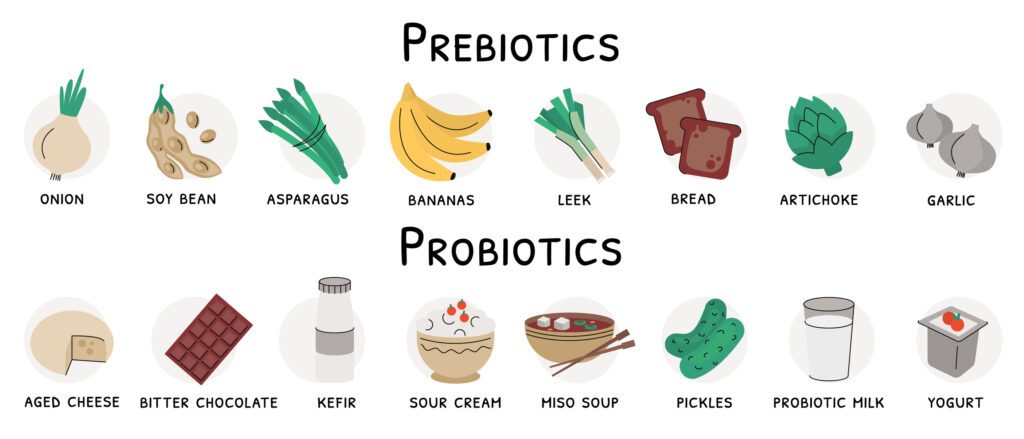
However, a more general rule is to eat a variety of fruits, vegetables and whole grains for dietary prebiotics. Supplements for probiotics and probiotics may be a consideration for some individuals. Inquire with a doctor or dietitian to see if this is something suggested for you.





